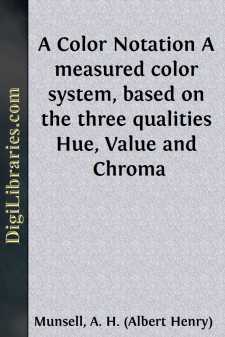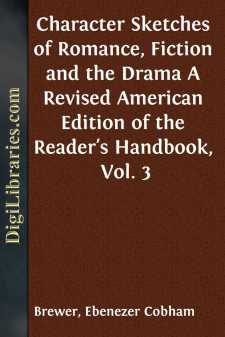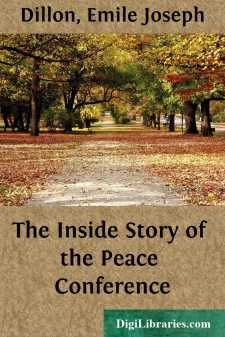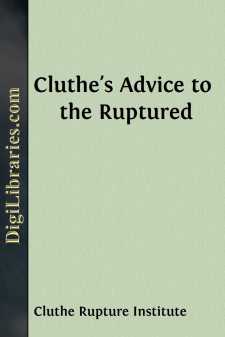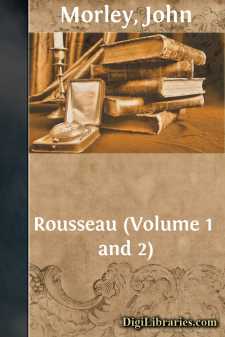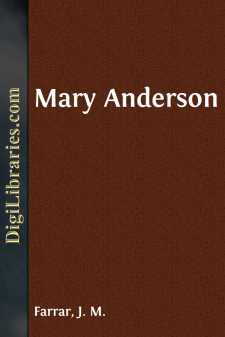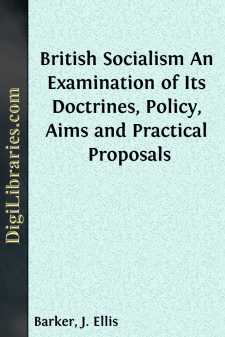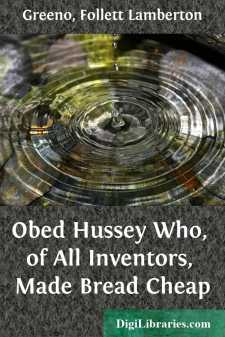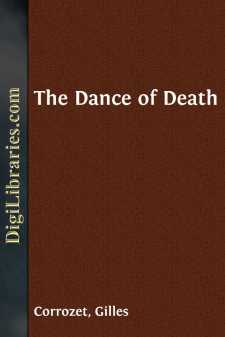Non-Classifiable
- Non-Classifiable 1768
Non-Classifiable Books
Sort by:
Chapter I.COLOR NAMES. Writing from Samoa to Sidney Colvin in London, Stevenson says: “Perhaps in the same way it might amuse you to send us any pattern of wall paper that might strike you as cheap, pretty, and suitable for a room in a hot and extremely bright climate. It should be borne in mind that our climate can be extremely dark, too. Our sitting-room is to be in varnished wood. The room I have...
more...
CHARACTER SKETCHES OF ROMANCE, FICTION, AND THE DRAMA. Mark Tapley, a serving companion of Martin Chuzzlewit, who goes out with him to Eden, in North America. Mark Tapley thinks there is no credit in being jolly in easy circumstances; but when in Eden he found every discomfort, lost all his money, was swindled by every one, and was almost killed by fevers, then indeed he felt it would be a real credit...
more...
I The choice of Paris for the historic Peace Conference was an afterthought. The Anglo-Saxon governments first favored a neutral country as the most appropriate meeting-ground for the world's peace-makers. Holland was mentioned only to be eliminated without discussion, so obvious and decisive were the objections. French Switzerland came next in order, was actually fixed upon, and for a time held...
more...
In a good many ways, rupture is one of the world's most terrible burdens. It is almost as common as poor eyesight. And the cause of far more trouble, far greater suffering and worry. For, while it's easy enough to get glasses that will improve the sight, only a small proportion of the vast host of sufferers have ever been fortunate enough to find anything that would even keep rupture from...
more...
by:
John Morley
CHAPTER I. PRELIMINARY. Christianity is the name for a great variety of changes which took place during the first centuries of our era, in men's ways of thinking and feeling about their spiritual relations to unseen powers, about their moral relations to one another, about the basis and type of social union. So the Revolution is now the accepted name for a set of changes which began faintly to...
more...
by:
J. M. Farrar
Chapter I. At Home. Long Branch, one of America’s most famous watering-places, in midsummer, its softly-wooded hills dotted here and there with picturesque “frame” villas of dazzling white, and below the purple Atlantic sweeping in restlessly on to the New Jersey shore. The sultry day has been one of summer storm, and the waves are tipped still with crests of snowy foam, though now the sun is...
more...
by:
J. Ellis Barker
CHAPTER I INTRODUCTION—WHAT IS SOCIALISM? What is Socialism? It is exceedingly difficult to answer that question in a few words, for Socialism is exceedingly elusive and bewildering in its doctrines, its aims, and its proposals. Its opponents have described it as "a doctrine of sordid materialism and of atheism," they have denounced it as "the gospel of everlasting bellyful," and as...
more...
PREFACE Every step in the progress of modern achievement has been met with strong resistance and hostile contest. There is in business an actual firing line where continuous conflict wages, and so fierce does the struggle become that it requires a certain class of men possessing qualities, not only of energy and perseverance, but of tenacity and combativeness, aggressive and determined to fight to the...
more...
by:
Gilles Corrozet
Non est medicamen in hortis." He is the despots' Despot. All must bide, Later or soon, the message of his might; Princes and potentates their heads must hide, Touched by the awful sigil of his right; Beside the Kaiser he at eve doth wait And pours a potion in his cup of state; The stately Queen his bidding must obey; No keen-eyed Cardinal shall him affray; And to the Dame that wantoneth he...
more...
by:
A. B. Shute
WALTER DETERMINES TO ENTER THE NAVY "Well, Walter, I suppose the newspapers are going like hot cakes this morning." "They are, Mr. Newell. Everybody wants the news. I ran out of 'Globes' and 'Heralds' before seven o'clock, and sent Dan down for fifty more of each." "That was right. It's a windfall for us newsdealers, as well as a glorious victory to...
more...


